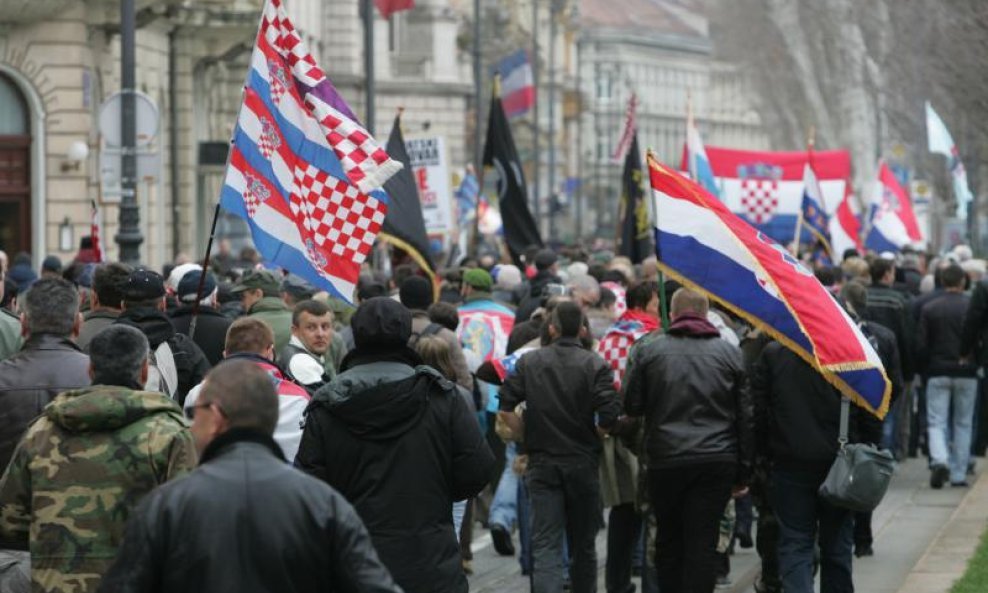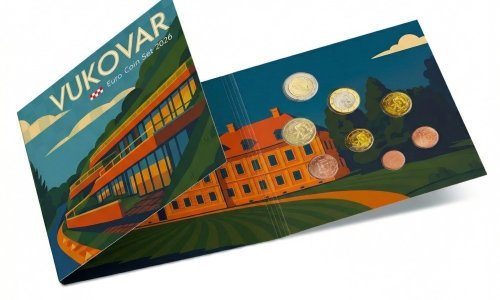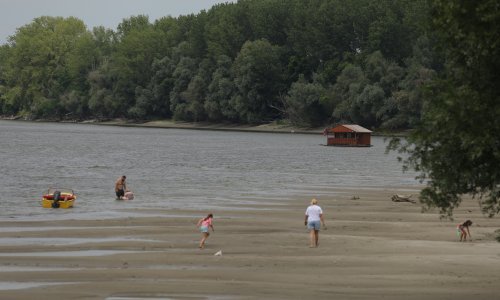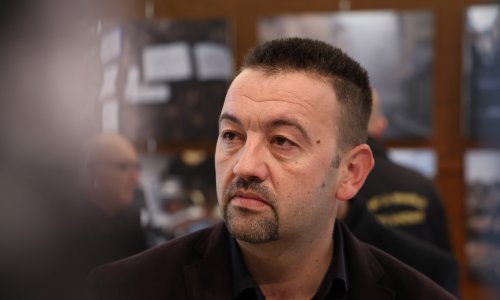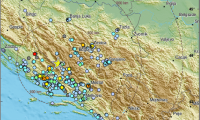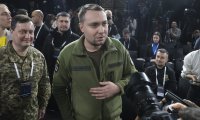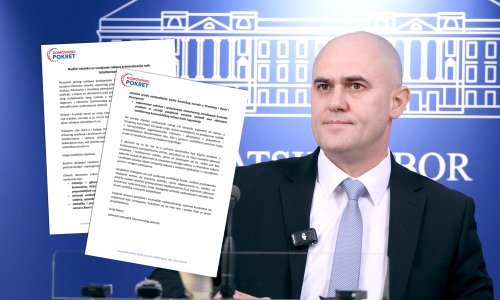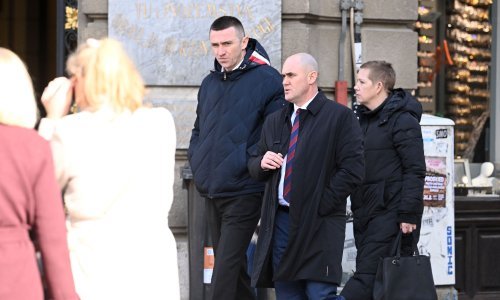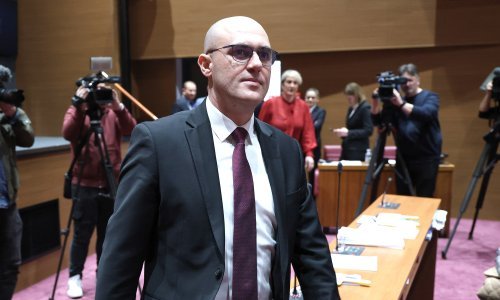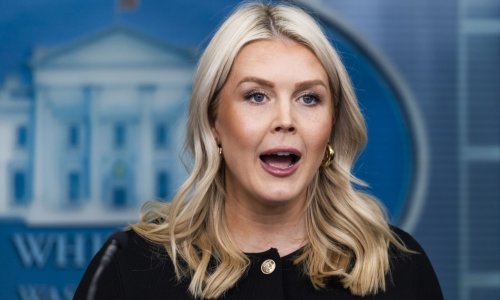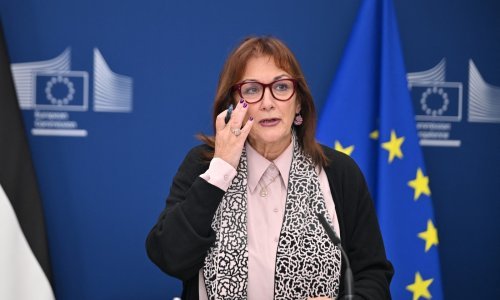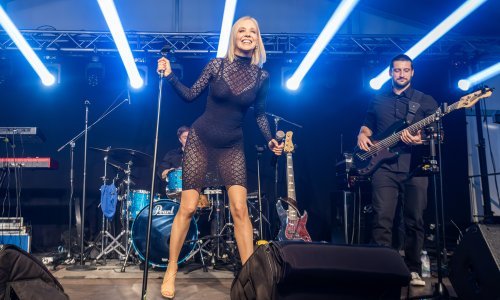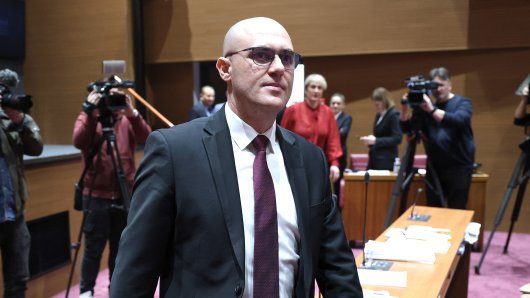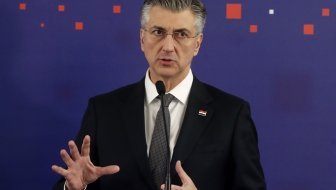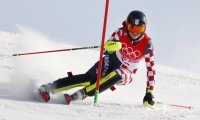Approximately 20,000 Croatians, mostly war veterans, rallied on Sunday in Zagreb's central square to protest against a plan to introduce signs in the Cyrillic script. The protest which started five minutes after noon ended shortly before 1400 hours with a request to the government to urgently change the constitutional law on the rights of ethnic minorities and declare Vukovar, by November 18, a town of lasting piety in which the Cyrillic alphabet would never be introduced.
The protesters waved Croatian flags, banners and insignia of military units. Public transportation through the main square, where the rally was held, was discontinued during the protest.
No incidents were reported. Police said there were 20,000 people in the central square and that there was no need for police intervention. According to other estimates, as many as 40,000 people gathered in the main square.
On behalf of the Committee for the Defence of Croatian Vukovar that opposes plans to introduce Cyrillic as a second official alphabet which organised the protest, Ante Nadomir Tadic addressed the protesters asking who gave the government the authority to introduce the Cyrillic alphabet, stressing that the government did not respect the people, as it did not react to their protest in Vukovar.
The rally in that eastern Croatian town was organised on 2 February by the Committee for Defence of Croatian Vukovar, comprising people who defended the town against Serb paramilitaries backed by the Yugoslav army during the war in the early 1990s, disabled war veterans, former inmates of Serb-run detention centres, children of defenders who were killed or went missing during the war, and officers of the Croatian armed forces and the police. They were joined by residents of Vukovar and people who came from throughout the country.
The government wants to introduce the Cyrillic script in Vukovar to win a few Serb votes at the coming elections, Tadic said at the rally.
The organisers of the protest criticised the government for refusing to receive them for talks.
The president of the Committee for the Defence of Croatian Vukovar, Tomislav Josic, said government representatives would not be welcome in Vukovar on the day this eastern town commemorates its victims unless they declare Vukovar a town of lasting piety. He stressed the committee enjoys the support of over 300 veterans' associations.
They said they particularly want to prevent Cyrillic signs from appearing in Vukovar, a city destroyed during a three-month siege by Yugoslav and Serb forces in 1991.
"We're not barbarians, we love our country more than anything else. We're against a forceful introduction of Cyrillic in our beautiful Vukovar," Josic told the gathering.
The committee believes that the time has not come yet for giving Cyrillic script the same status as Latin script, stressing that it would lead to ethnic intolerance and jeopardise the peace in the town. It wants Vukovar to be exempt from the Constitutional Law on the Rights of National Minorities or that the introduction of bilingualism in the town be placed under a moratorium of at least 50 years.
According to the 2011 census, local Serbs account for just over one third of the population in Vukovar, which enables them to exercise certain rights such as signs written in the alphabet this minority uses.
On 5 February, the European Commission declined to comment on the latest developments regarding plans to introduce dual-alphabet signs in Vukovar and the opposition to possible Cyrillic signs in the eastern Croatian town.
We do not comment on details in relation to the events in Vukovar. We only want to remind about two European Union principles: the rule of law which means that the laws should be respected and the government should ensure the enforcement of laws. The other principle is reconciliation and protection of minorities. These principles are an integral part of the values embraced by the EU, said European Enlargement Commissioner spokesman Peter Stano then when asked to comment on rising opposition to the possibility of installing Cyrillic signs in Vukovar.
However, the last monitoring report regarding Croatia released by the EC on 26 March reads that "it is welcome that the government continues to ensure the implementation of the constitutional provisions on the use of the Cyrillic script in the city of Vukovar, where Croatians of Serb ethnicity account for 38.5% of the population."
Opponents of bilingualism say that despite the constitutional provision on bilingualism, the Croatian executive authorities should also take into consideration that there is another constitutional provision envisaging that certain rights may be restricted if they are considered harmful in a given period.
These most vociferous opponents also warn that local Serbs, even those who participated in the military aggression against and occupation of eastern Croatia in 1991, have in the meantime been amnestied and allowed to exercise many minority rights, which also enables that some of them may only formally be registered in Vukovar but their actual place of residence is in Serbia or Serb-populated areas in Bosnia and Herzegovina, all of which has led to "a contrived image of the ethnic structure in Vukovar" and to the "current absurd situation" in the city.
Those present at today's rally stressed that there were 22 ethnic minorities in Croatia but only one did not respect Croatia and was constantly exerting pressure on the government.



